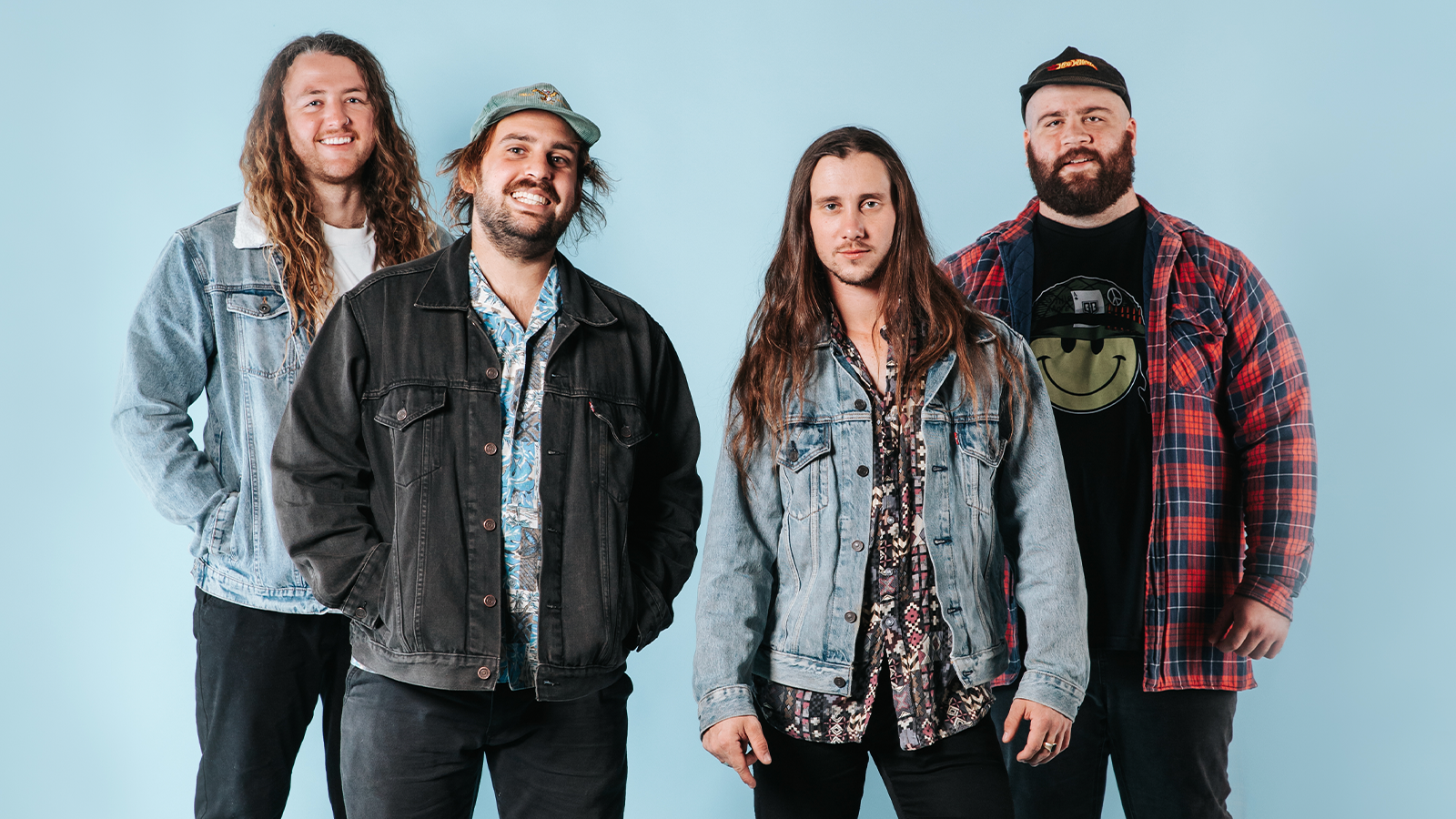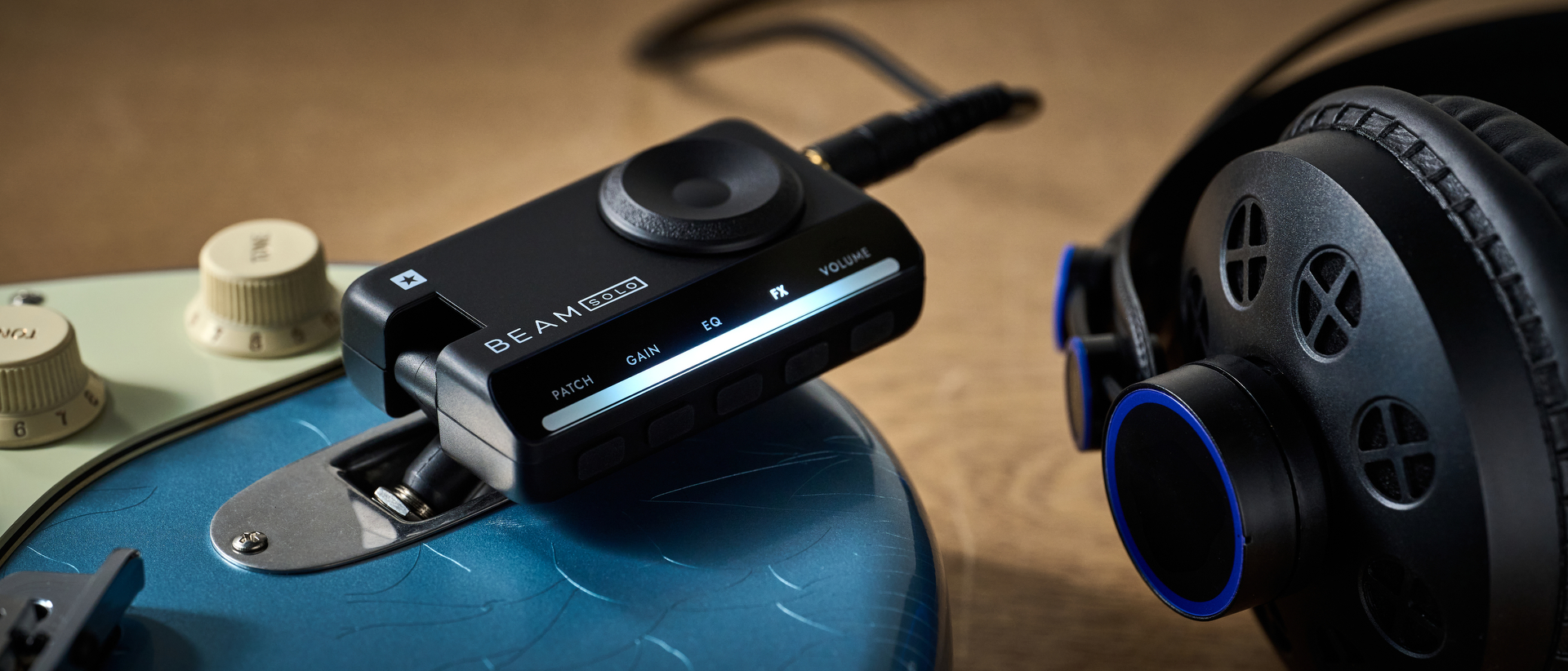Beddy Rays: “I think the music does a lot of speaking for itself”
Too many bands sweat the little things when it comes to making their debut albums. But as Beddy Rays tell Australian Guitar, they didn’t even think too hard about the big ones

With their earwormish slate of jaunty and sun-kissed indie-rock, Beddy Rays capture the lackadaisical, blithesome and free spirit of their stomping grounds: the coastal Queensland paradise of Redland Bay (better known to the locals, though, as Reddy Bay). It makes sense, then, that Beddy Rays are named after the town (albeit in spoonerism form), and that debut album would be a self-titled affair.
It’s a testament to the very core of the quartet, as they declared in a statement: “We decided to go with a self-titled album for our debut because we believe this album is Beddy Rays, through and through.” They explained that when the band was formed in the halcyon days of 2017, “all [they] wanted to do was play gigs, sink tins and chat to all the legends we’d meet along the way”.
They’d never planned to wind up here with a full-length album, so when it finally came time to whip one up, Beddy Rays didn’t lose themselves in the labyrinthine malaise of concepts, studio politics or murder-mystery pinboards – they just cranked up their amps, cracked open some tins and started jamming away like their lives depended on it. The band tracked it with local legend (and Bugs drummer) Brock Weston, and end result, they say, is like “a nice bag of mixed lollies”.
Midway through their sprawling national tour in support of the it, frontman Jackson “Jacko” Van Issum and Lewis “Lewy” McKenna sat down with Australian Guitar to fill us in on how they made those lollies extra sweet.
So at its core, what makes this record the definitive reflection of who and what Beddy Rays are?
McKenna: I think the music does a lot of speaking for itself. It’s all laid out in what the songs are about, you know, like mateship and checking in on your mates, all that sort of stuff.
Van Issum: It’s just honest. It’s not hidden in metaphors, and all the lyrics are pretty well laid out in front of you. We’re just doing what we know – and we don’t really know what we’re doing [laughs]. We’re just giving it a crack, we’re not really thinking about it too much. It’s not like we went in there going, “Let’s sound like this!” We were just sort of like, “Alright, let’s write some songs!” And even with that, it wasn’t like, “Let’s write a bunch of songs that can fit together on this special thing,” it was just, “Yeah, these sound like pretty good songs, let’s make an album out of them.”
You guys have done a lot of really cool shit since the EP came out, you’ve played everywhere there is to play and you’ve linked up with a bunch of enormous legends… How much of that experience ended up shaping the sound of this record?
McKenna: Yeah, I think a lot of the songs are drawn from our experiences of being in a band and stuff like that.
All the latest guitar news, interviews, lessons, reviews, deals and more, direct to your inbox!
Van Issum: Yeah, there’s a lot of situational things that you see between your friends, or experience with yourself or whatever, and you just can’t help but write an honest song about it. I’m always writing in that first-person perspective, too, because I don’t want to sing about someone else. And then even when I am, I’m doing it in first-person, so they’ll never notice [laughs].
When someone pops this record on for the first time, especially if they’re not super familiar with the band, what do you hope they get out of it?
McKenna: Well, hopefully they’ll want to come out to a show! I don’t know, I hope they enjoy the older stuff that’s on there, and I hope they enjoy the newer stuff just as much. It’s got a little bit of a different sound [to the EP].
Van Issum: I just hope that someone could put it on and have it make their day a little better – get a bit of a beat going in their step, a bit of a higher tempo cranking when they’re driving to work or whatnot… I hope it makes you enjoy your day a bit more. That’s what I love about music, you know, when you hear a song for the first time and you’re like, “Ah yeah, this makes me feel good!”
Do you typically have the live show in mind when you’re working on a song?
Van Issum: That’s definitely one of the main things that we think about when we’re writing a song. We’re a live band, really – all the other bullshit in-between, like, you have to do it, but at the end of the day we just love going out and playing to as many people as we can. So we’re always thinking about that in the songwriting process, going, “Ah, when we do this one live, we’ll be able to slow this bit down, add this bit in there, they can sing along to this bit…”
McKenna: If I’m stuck on a part or something like that, Jacko will usually be like, “Alright, well if you were at a festival and you were watching this song being performed live, what would you want to hear next?” And we’d sort of try to build off that. You know, it’s a good starting point for a song.
What song(s) from this record do you think will pop off the hardest?
McKenna: Ooh, that’s a hard one! I feel like ‘Fotu’ is really gonna go off. Just with what it’s about and how fun it is, and how punky and fast it is, I think that’ll go off super hard at a fezzie.
Van Issum: There’s a song called ‘Coffee Stops’, too, which has a bit of a bigger sounding, more drawn-out chorus on it, so that could be right up there as well. I don’t know, there’s too many good songs [laughs].
What guitars were you tearing shit up on in the studio?
McKenna: So we’ve got our main music sticks: I’ve got a Performer Series Jazzmaster, and I did a lot of my parts on that, but then I’ve also got a white American Strat. Jacko, you’ve got your Gibson...
Van Issum: Yeah, I’ve got the Les Paul Junior. It’s this yellow little beast. It’s got a pretty thin neck on it, which I think is interesting – a lot of the other Juniors I’ve played have really thick necks on them. I just bought this one on the internet, from this dude in Ireland, and the whole time it took for it to come I was like, “F***, I hope it’s not a shit guitar.” But it goes okay – I’ve been playing it at every show since! So that made its way onto the record a lot, just for thickening up the choruses and whatnot.
And there was the ‘snot guitar’ – that’s just a Tom DeLonge Strat, and that’s on nearly every single song, just in the background, playing along with a high-gain amp just to thicken up choruses and stuff. And I’ve recently just got my hands on a Noventa Telecaster. It’s just like my Les Paul Junior, it’s got one P-90 in it, and I just wanted a sort of backup guitar with that style. I feel like you can throw it around a bit more – you can finish a show with it and... not drop it, but you know, you don’t have to place it down really softly because it has a Gibson neck. It’s like a more roadworthy version of the Les Paul.
McKenna: Our producer, Brock [Weston], he’s got a couple of studio guitars as well. He’s got this nice-as Paul Reed Smith that we used a lot for ‘On My Own’, And then he’s got this new… It’s like a Fender Telecaster Ultra Mega Deluxe, something or other – some expensive bit of kit [laughs]. But it’s such a beautiful guitar and it just plays like butter, so we did quite a few parts on that as well. We used quite a few guitars on the record, I suppose!

Ellie Robinson is an Australian writer, editor and dog enthusiast with a keen ear for pop-rock and a keen tongue for actual Pop Rocks. Her bylines include music rag staples like NME, BLUNT, Mixdown and, of course, Australian Guitar (where she also serves as Editor-at-Large), but also less expected fare like TV Soap and Snowboarding Australia. Her go-to guitar is a Fender Player Tele, which, controversially, she only picked up after she'd joined the team at Australian Guitar. Before then, Ellie was a keyboardist – thankfully, the AG crew helped her see the light…
